This exclusive story is brought to you by In Real Life Malaysia – For sharing, please credit us and add a backlink. We value your kind acknowledgement of our editors in sourcing and conducting interviews.
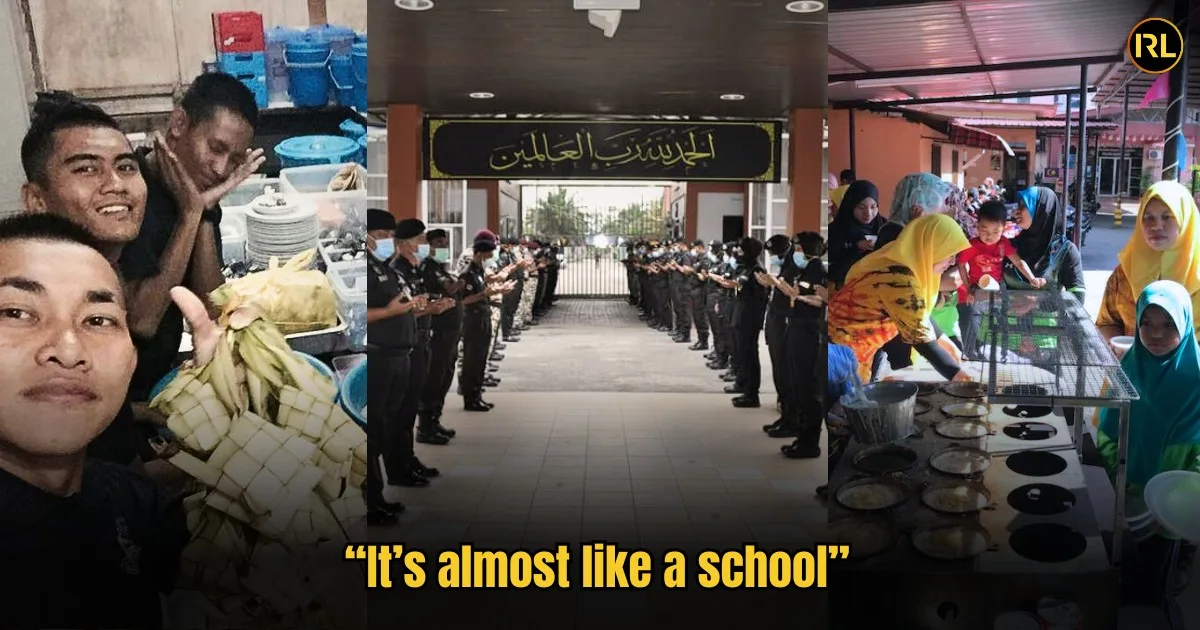
This story is about the daily life of an inmate in a Malaysian prison and the reality of life behind bars, shared by a former prison warden with over 10 years of experience.
“We have a system, and you are expected to have high discipline at all times,” shares Hafiz, a prison warden at a Malaysian prison.
According to Hafiz, Malaysian prisons are categorized into three main types: maximum security, medium security, and minimum security. There are also special facilities like remand prisons, such as Sungai Buloh, which house unconvicted detainees awaiting trial.
Contrary to the dramatic portrayals in TV shows, prisons in Malaysia function more like corrective centers, with a system focused on discipline and rehabilitation.
Living Conditions in Prison
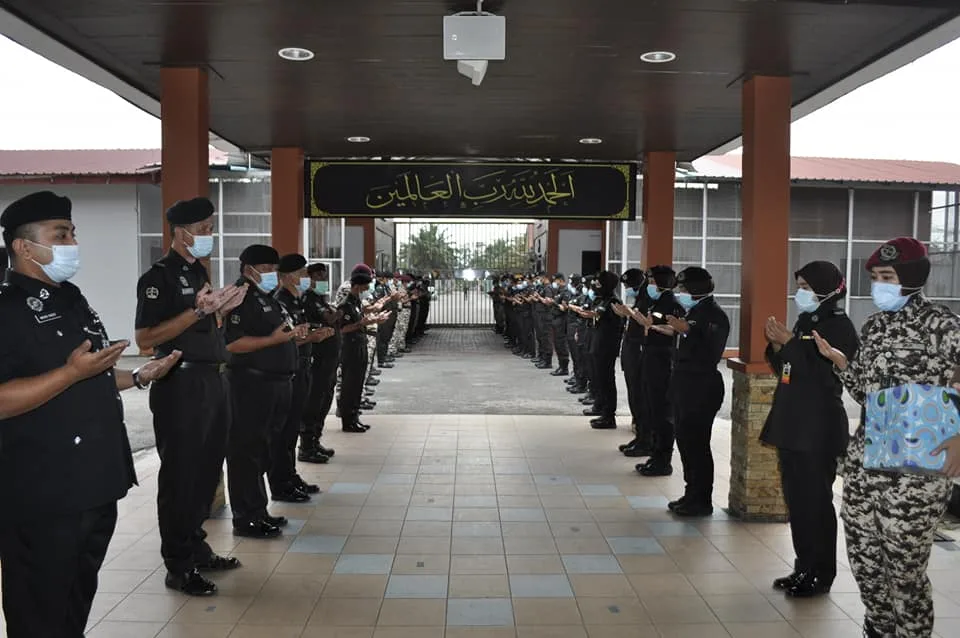
Image source: Penjara Pengkalan Chepa FB
Inmates sleep on thin latex mattresses, about two inches thick, on basic beds. While newer prisons are relatively clean, older facilities can be unpleasant, with a smell so strong it can suppress appetite.
“You probably don’t know what human oil smells like. It smells so strong that you won’t feel like eating for the rest of the day. But we’ve gotten used to it,” Hafiz shares.
Meals, cooked in halls and endorsed by the Ministry of Health (KKM), are simple but nutritious, akin to school canteen food.
On special occasions like Hari Raya or Chinese New Year, inmates are treated to festive meals, and families can purchase traditional delicacies for them. Birthdays are celebrated with a complete meal, including chicken, fish, and cake.
The Inmate Demographic
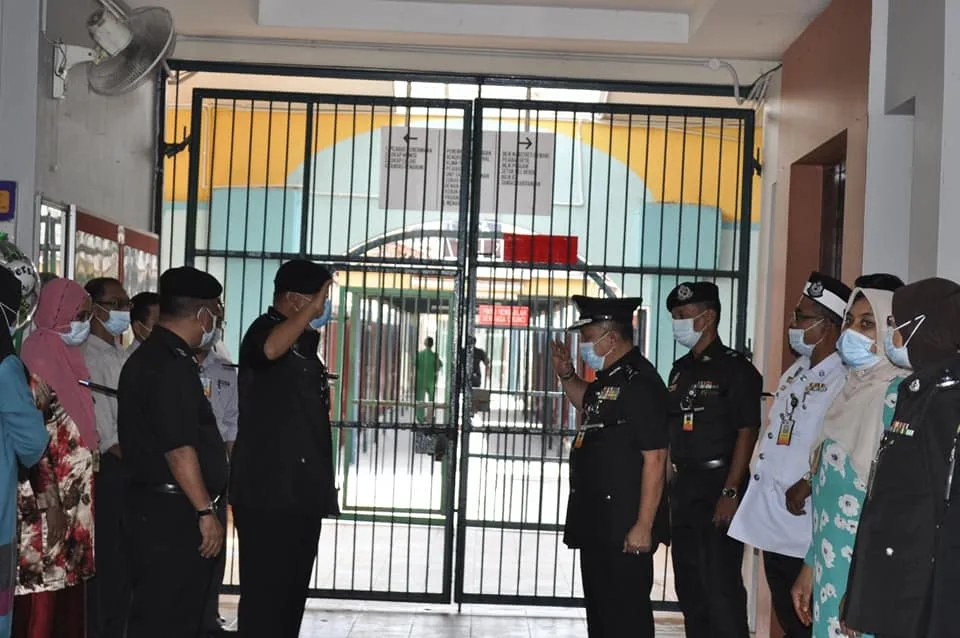
Image source: Penjara Kajang Selangor FB.
The majority of inmates are incarcerated for drug-related offenses, with a smaller number convicted of petty or serious crimes. Most inmates are compliant and behave well, especially those who are convicted, as they can earn time reductions for good behavior.
“Overall, they behave because they depend on us to do everything: eat, sleep, shower and so on,” shares Hafiz.
“However, detainees that aren’t convicted are a bit hard to control because they’re not given a discount for good behavior,” he added.
As for pregnant inmates, they receive prenatal care from prison doctors and are escorted to hospitals for delivery. Postnatal care is provided, and mothers are allowed to breastfeed their babies for up to two years.
In newer prisons, there are dedicated spaces for breastfeeding, while in older facilities, cellmates often assist in caring for the baby.
Addressing Misconceptions
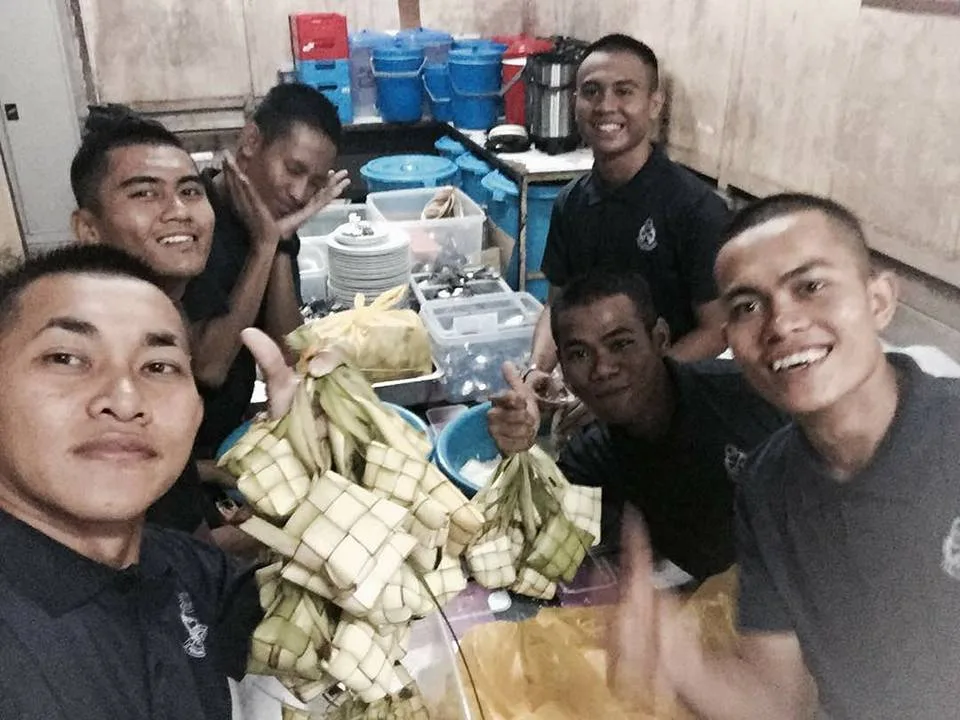
Image source: Penjara Pengkalan Chepa FB
Hafiz emphasized that common rumors about inmate bullying or sexual violence are false. Strict monitoring and harsh penalties, such as additional prison sentences, deter such behavior.
Wardens patrol every 30 minutes to ensure inmate safety and discipline. High-profile offenders, like molesters or pedophiles, are kept isolated initially to prevent retaliation from other inmates.
“There was a case where they ‘did it’ in a dormitory that tightly fit 90 people,” shared Hafiz. “When we found out, they were all charged with an extra 10 years added to their sentences.”
Gang activity does occur, with some gangs originating within prisons. However, fights are rare, often involving individuals with mental health issues rather than gang members.
Smuggling of contraband, such as drugs or tobacco, remains a challenge, with items often hidden in body cavities. Tobacco, in particular, serves as a form of currency.
“Once, a male prisoner had 3 condoms packed full with tobacco inside his anus!” exclaimed Hafiz.
Deaths and Escapes
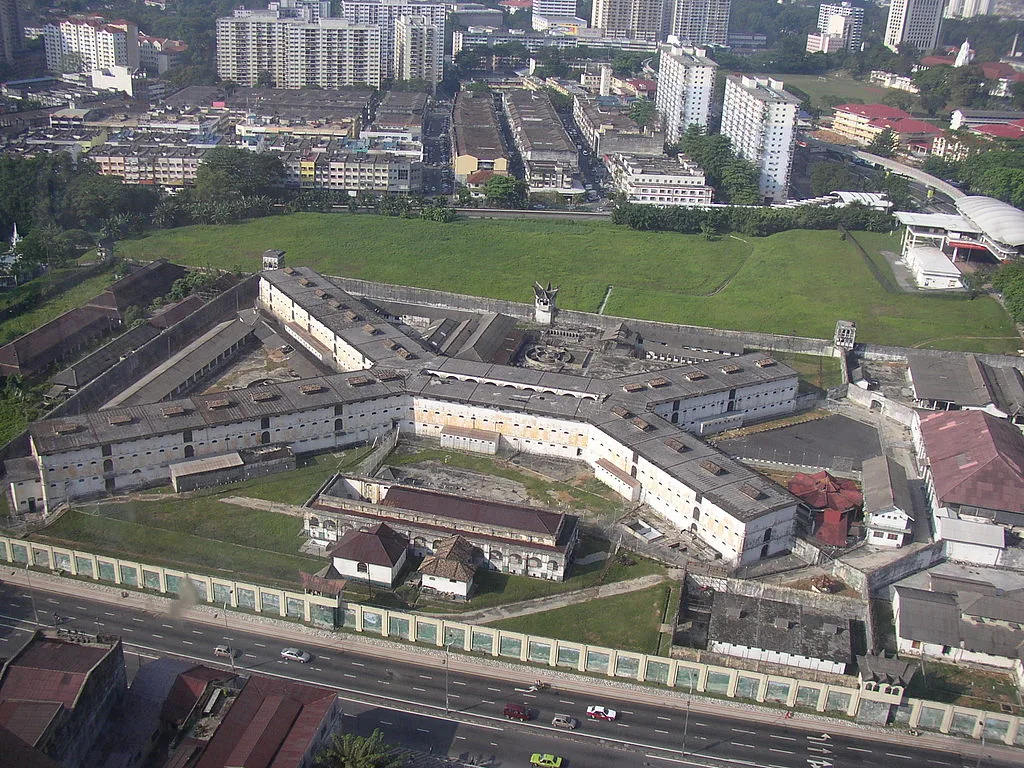
Deaths in prison are often due to illnesses like pneumonia, a reflection of prison conditions. While rumors circulate about beatings, the warden clarified that unlawful killings are rare and strictly punished.
“When someone gets beaten to death, sometimes it’s due to human error, sometimes it’s just rumors and gossip, and sometimes people just can’t stand the bad behavior of another human. That I think is the most common answer,” shared Hafiz.
Escapes, though infrequent, result in swift action.
“Once, there were 3 runaways and the town got locked down, but most of the public were unaware of their escape,” Hafiz shared.
“They were caught quickly by the pegawai penjara (chief prison warden) in less than a day. The pegawai penjara got a watch and pingat (medal) for successfully apprehending them,” he added.
Rehabilitation Programs
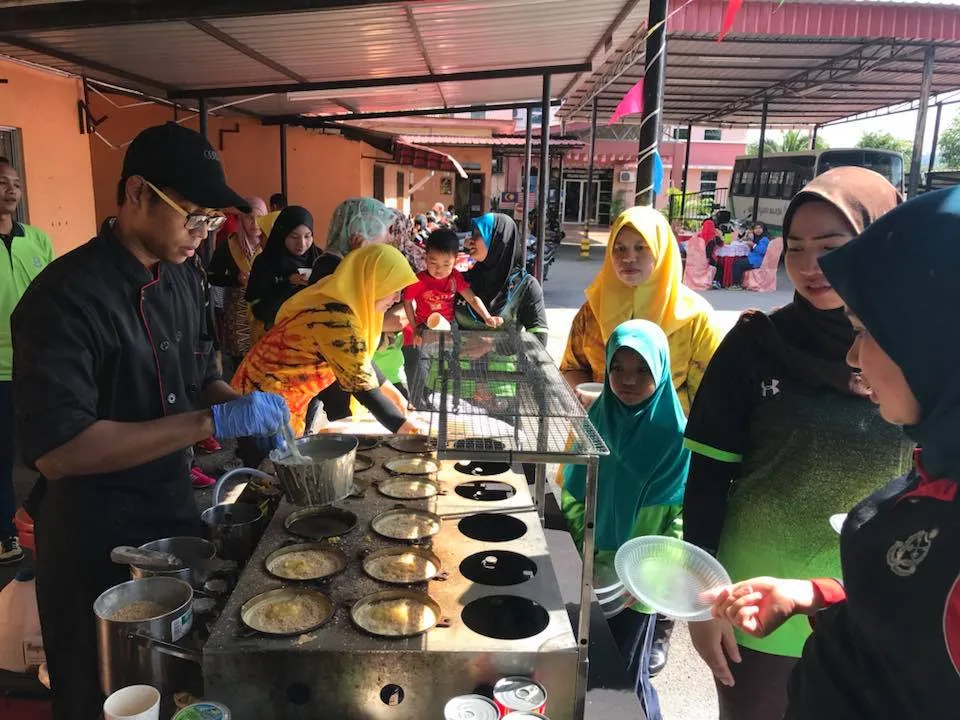
Image source: Penjara Wanita Kajang
Rehabilitation is central to the prison system. New inmates undergo rigorous training akin to military drills before progressing to vocational work.
They can acquire skills like gardening, tailoring, or clock-making, which help them reintegrate into society.
Prison labor contributes to the economy, with inmates producing items like furniture and crafts sold to the public.
“They earn money based on the colour of their uniforms. It’s a suit that differentiates them based on which stage of rehabilitation they’re currently at. Each colour has their own salary grade,” explained Hafiz.
“It’s like army training for new prisoners, and once they’ve “graduated” inside the prison, they work there during the next few years,” shared Hafiz.
They receive a small allowance, which can be sent to their families or saved for life after release.
Some inmates even pursue higher education, including degrees and doctorates, through partnerships with universities.
Despite the challenges, Malaysia’s rehabilitation programs have kept the re-offense rate below 10%, demonstrating their overall effectiveness.
The reintegration process involves thorough record checks and interviews with the prison director. Upon release, inmates are reunited with their families and can start anew.
Some find success, with their stories documented in Sistem Online Jabatan Penjara Malaysia..
Death Row and Lifetime Sentences
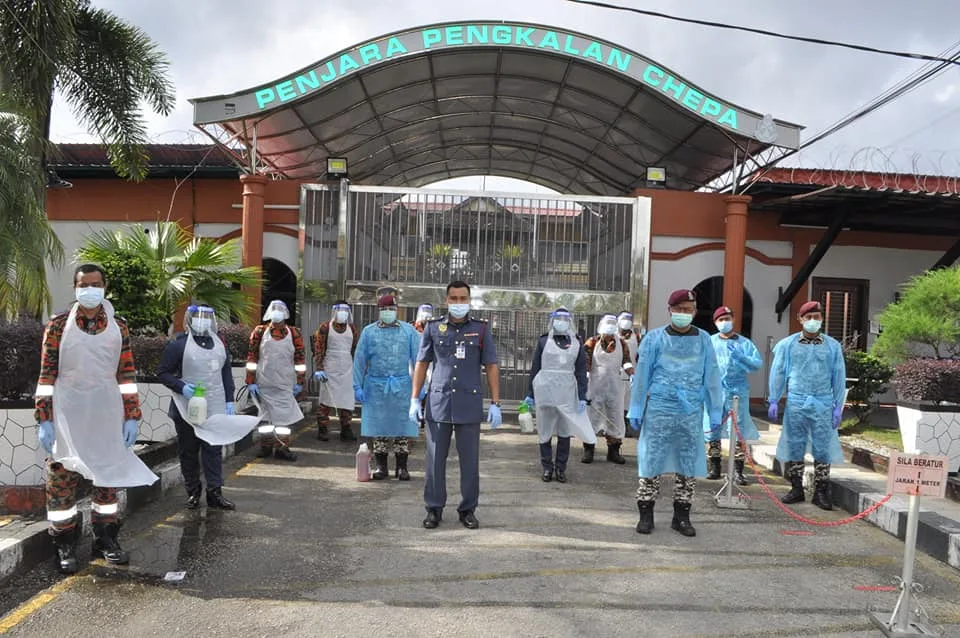
Death row inmates are excluded from most activities to prevent accidents. Executions, though rare, follow a strict protocol, with the prisoner allowed a final meal and family visit.
“Only specially-trained people can execute the death sentence. The method is basically using a lever to make the neck snap. This same method has been used since the olden days, with no changes, since death row is no longer accepted in modern countries,” shared Hafiz.
Lifetime inmates, on the other hand, often receive royal pardons after decades of imprisonment, enabling them to reintegrate into society.
“Lifetime prisoners would stay up to 40 years in prison, and at the end of their lives, get an official pardon from the Agong,” explained Hafiz.
Challenges and Overcrowding
Overcrowding is a significant issue in Malaysian prisons, exacerbated by aging infrastructure. Dormitories meant for 30 people now house up to 90.
While new prisons are being constructed, they primarily replace older ones, offering little relief.
“We have done everything we can to stop overcrowding, but unless the ministry approves our request to build a new prison, we can’t do anything else,” pleaded Hafiz.
Parole and pre-release programs alleviate overcrowding slightly, but only for a fraction of the population.
“In the end, the money is with the ministry to decide,” Hafiz concluded.
Have a personal life experience to share?
Submit your story and be heard.
Email us at ym.efillaerni@olleh and you may be featured on In Real Life Malaysia.
Also read:
“We Don’t Want You Here,” I’m Living In Malaysia as a Refugee, Here’s What It’s Really Like
“We Don’t Want You Here,” I’m Living In Malaysia as a Refugee, Here’s What It’s Really Like
More from Real People
‘A RM100 fee cost a company 5 years of revenue’ shares M’sian
This story is about a Malaysian who learned that bureaucracy can be defeated simply by not arguing with it.A billing …
‘I quiet-quit, upskilled, and tripled my salary,’ shares M’sian engineer
This story is about a Malaysian who learned that loyalty without leverage leads nowhere in the corporate world.After years of …
‘I did everything right, and it still wasn’t enough’ shares M’sian graduate
This story is about a Malaysian graduate navigating big dreams in a job market where a degree no longer guarantees …















